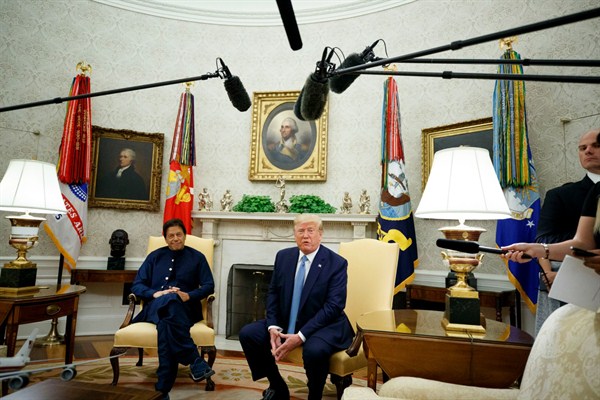Pakistani Prime Minister Imran Khan enjoyed a warm visit to Washington this week, with his hosts, from President Donald Trump to Secretary of State Mike Pompeo and Sen. Lindsey Graham, all affirming the importance in particular of cooperation between the U.S. and Pakistan in Afghanistan. For a Pakistani government that viewed Khan’s visit as an opportunity to reset a relationship that suffered immensely during the early months of the Trump administration, it was an encouraging sign.
The bilateral relationship has indeed come a long way since 2017 and 2018, when Trump threatened a harder line on Pakistan, tweeted angrily about Islamabad’s “lies and deceit,” and suspended American security assistance. The main reason for this about-face is rooted in Trump’s increasingly urgent desire to end the long war in Afghanistan—a war he often criticized before becoming president and has never seemed comfortable continuing, even when he announced a new South Asia strategy in August 2017 that entailed staying the course.
In recent months, the Trump White House has decided to aggressively pursue peace talks in Afghanistan and to enlist Islamabad as a key partner in helping launch and sustain negotiations with the Taliban. The administration invited Khan to Washington in large part to recognize and reward Pakistan for its help with the Afghan reconciliation process over the past year, bringing U.S. government officials and Taliban representatives together for multiple bilateral talks in Qatar.

